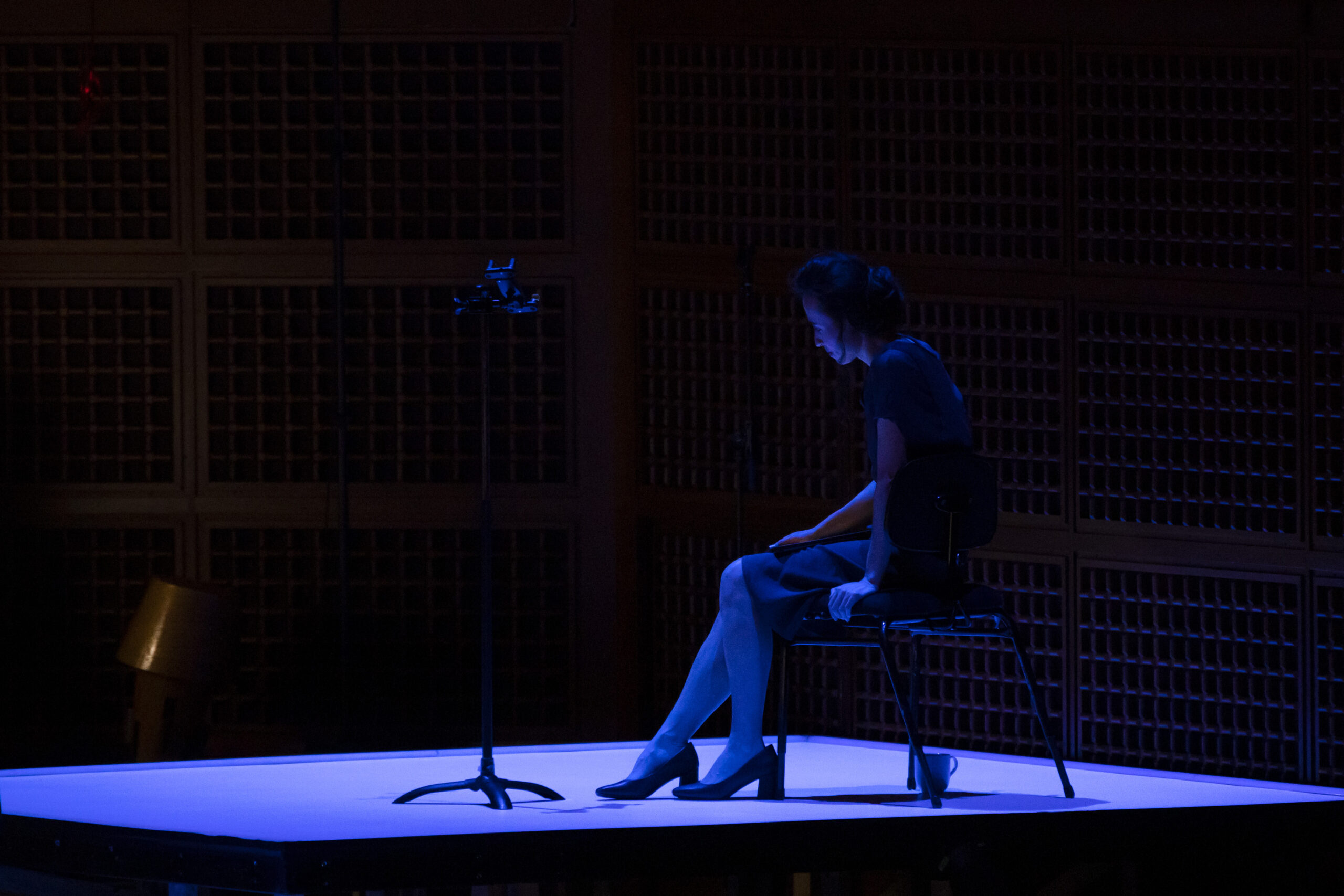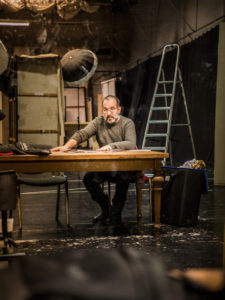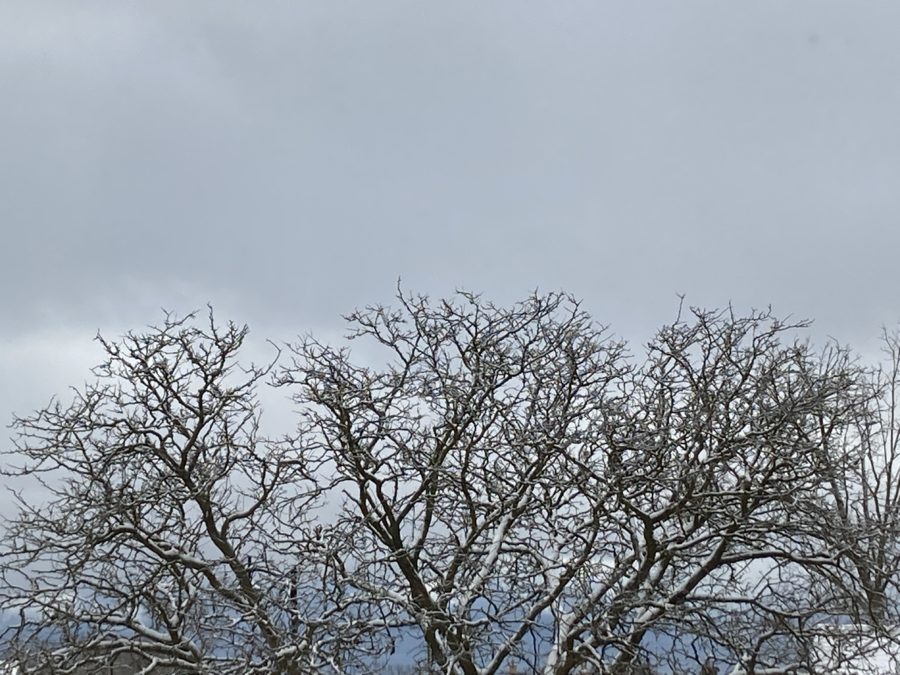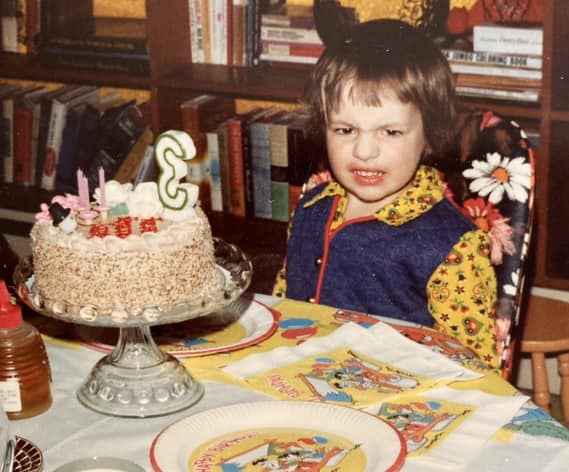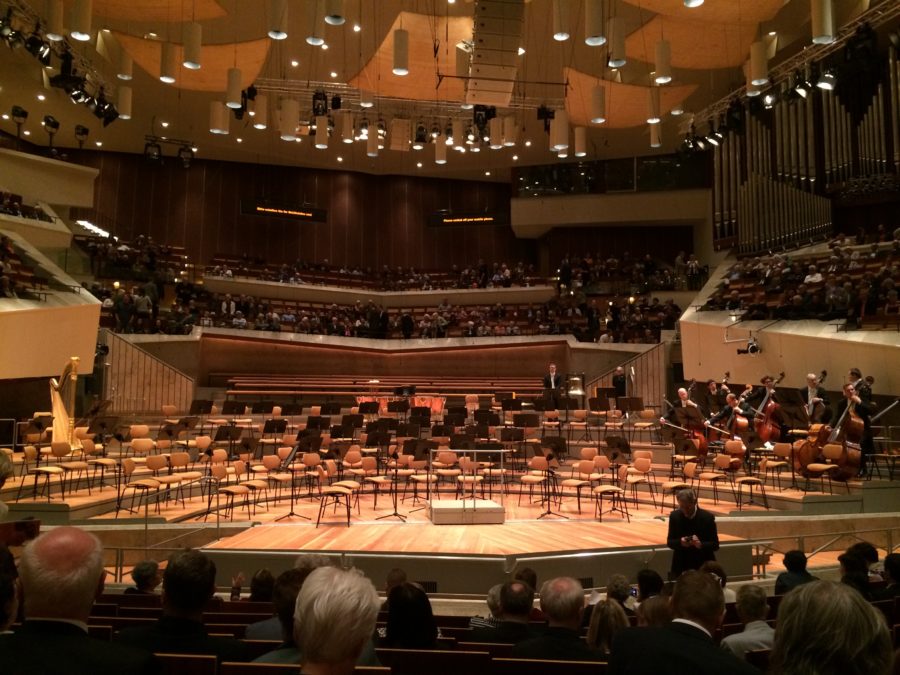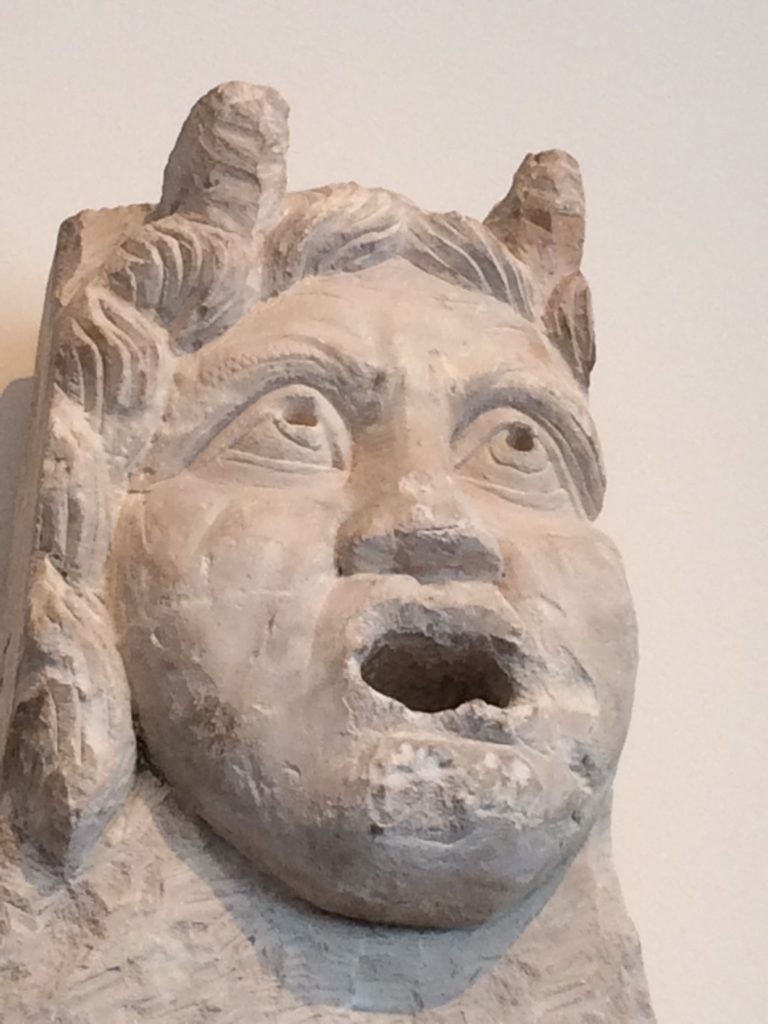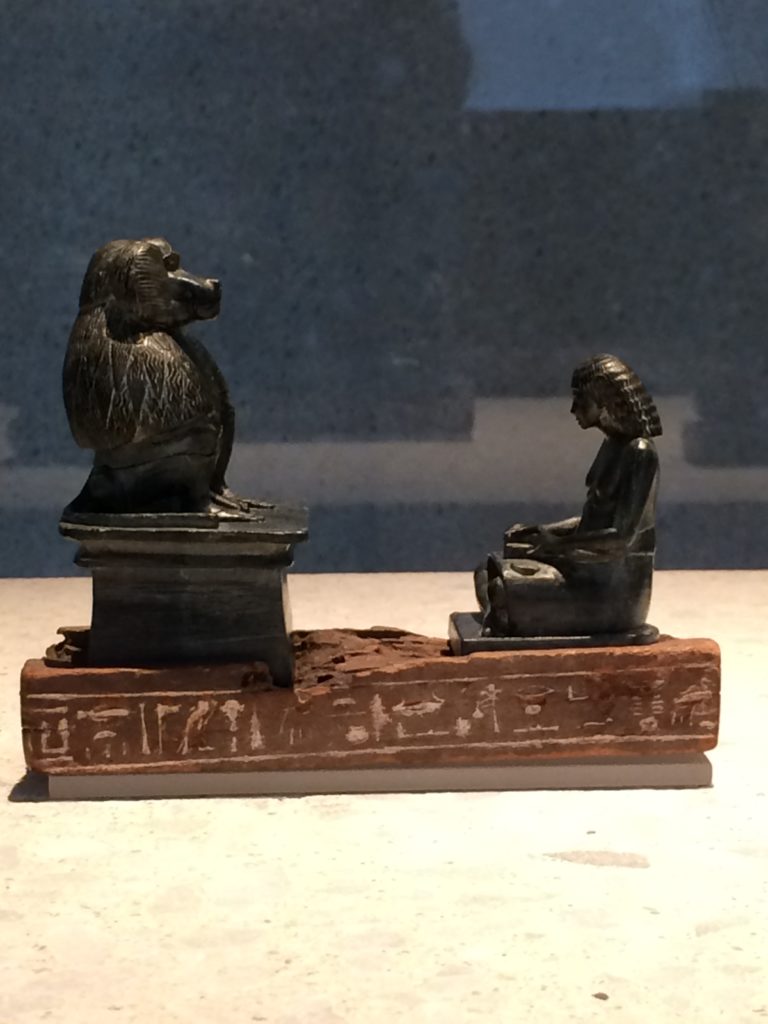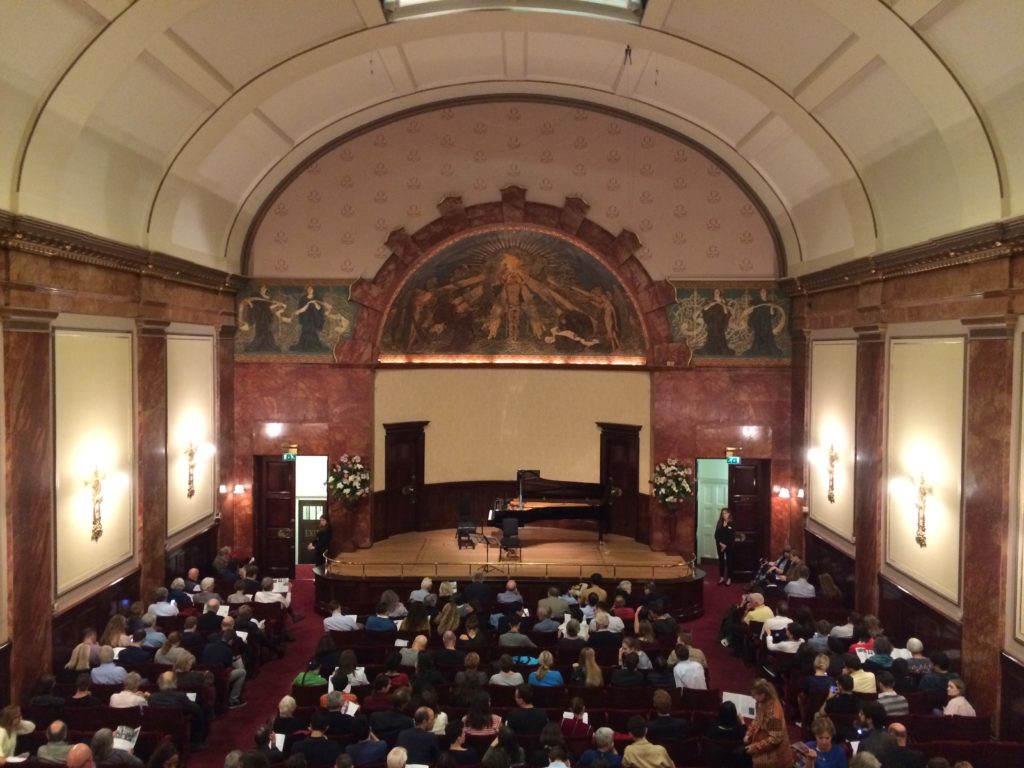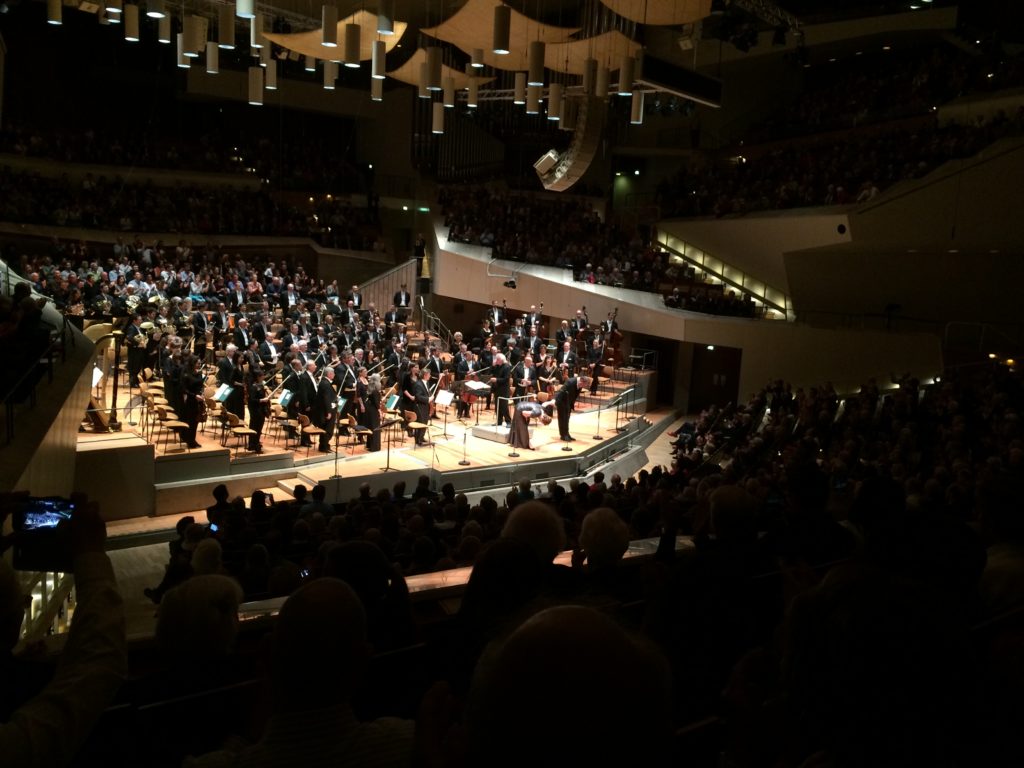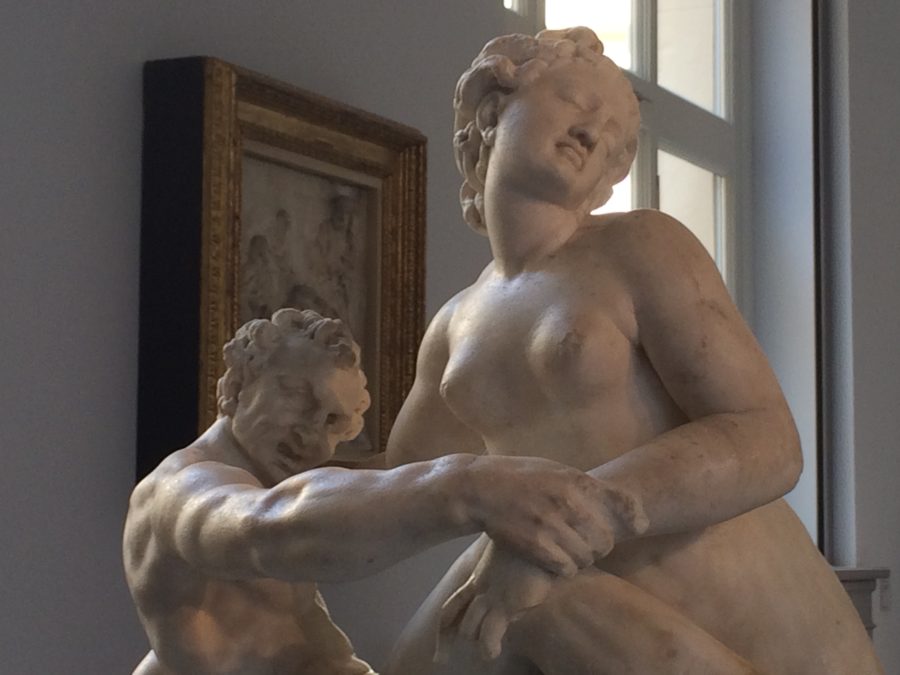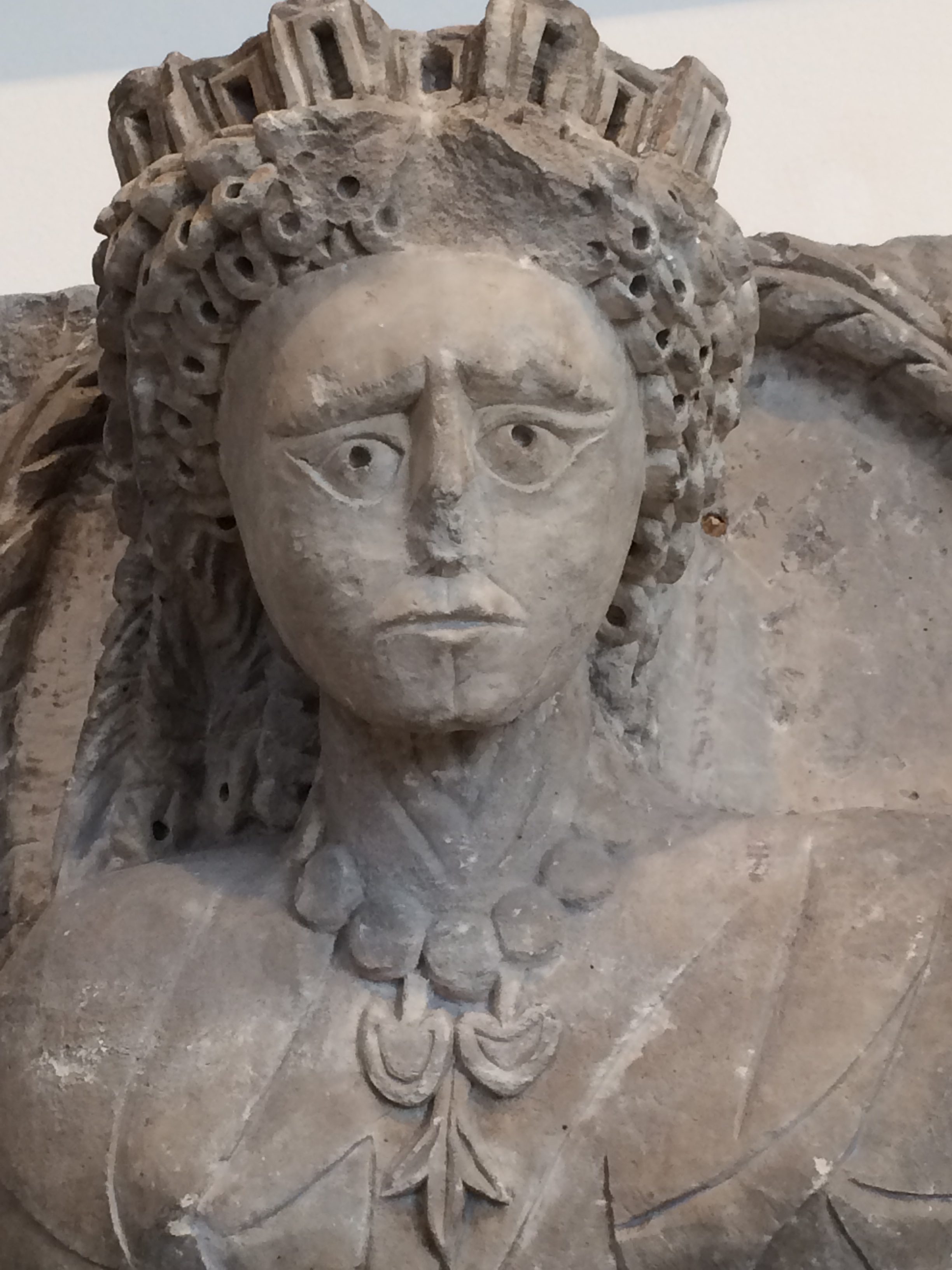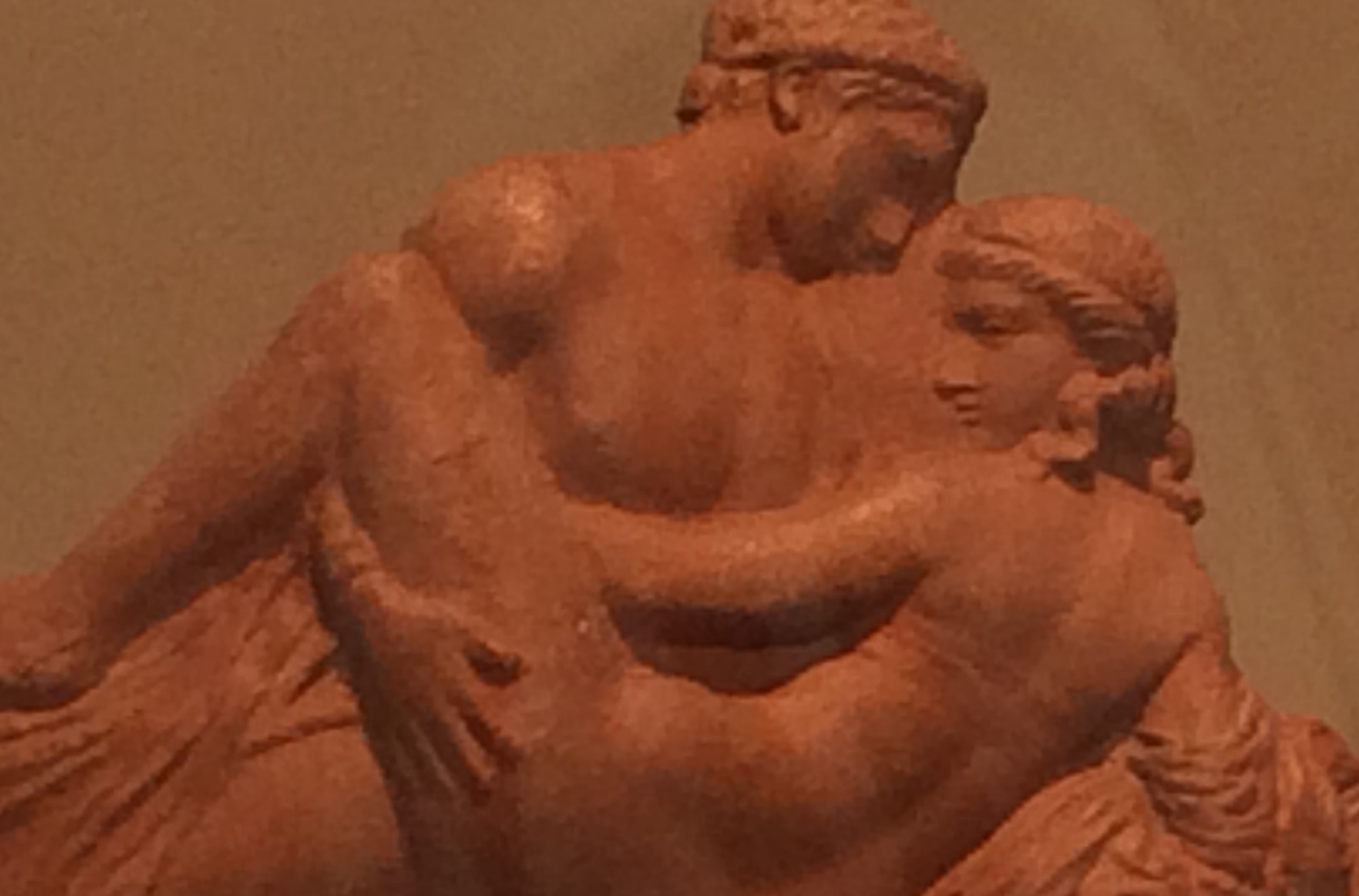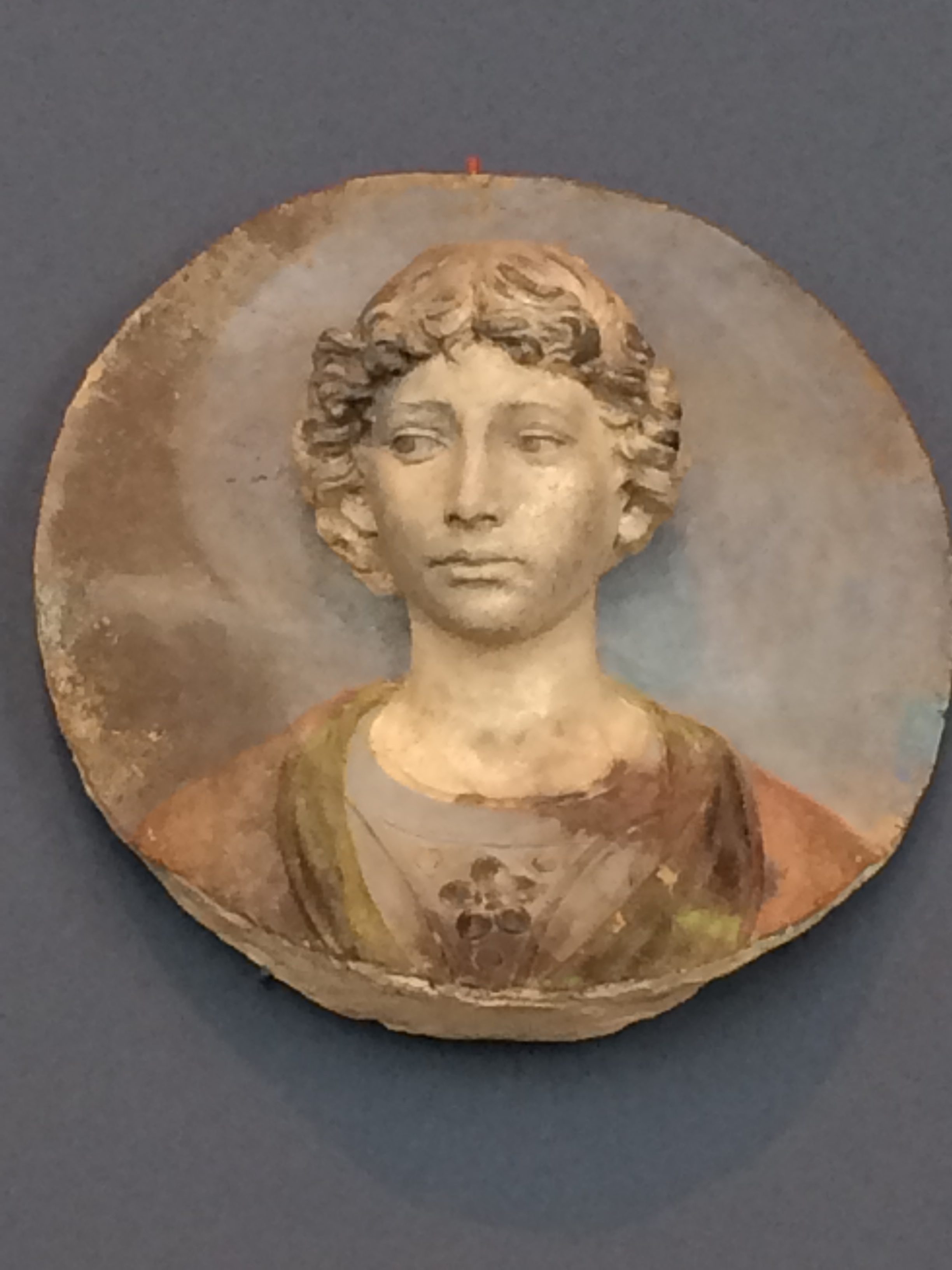Rachael Hewer is probably rather tired of the color green. The UK-based director and theatre artist is the founder of VOPERA, the Virtual Opera Project, which premieres its first production on Monday (November 16th), Ravel’s one-act opera L’Enfant et les Sortilèges. Conductor Lee Reynolds (Associate Conductor of the National Youth Orchestra of Great Britain) leads the London Philharmonic Orchestra in a re-orchestration of the score for 27 players, and the cast comprises more than 80 performers, all of whom, throughout the course of this difficult year, participated in rehearsals via Zoom and subsequent audio recordings. Hewer constructed a homemade green-screen studio out of their garden shed, using the FX technique to overlay the recorded cast’s singing faces with captured movement in a unique and imaginative operatic form of body-doubling. As it turns out, she spent a lot of time in that shed and in-costume over the past few months. The theatre artist has, in the past, worked in various creative capacities, as a director, actor, and assistant director, at Devon Opera, Glyndebourne, Opera Holland Park, and the Royal College of Music, to name a few. Hewer was also a winner at the International Awards for Young Opera Directors, Moscow in 2019. VOPERA, which marks her first all-virtual production, features the work of British artist Mark Wallinger, show designer Leanne Vandenbussche and cinematographer and VFX Editor James Hall.
With help from her partner, Hewer provided the movement for the many roles within the opera, in a production chock-full of talent in vocal, design, and administrative areas. Producer Tamzin Aitken has extensive experience as an arts manager and creative consultant specializing in the classical music realm. In the past decade Aitken has worked with Glyndebourne, English National Opera, the Royal Opera House, Southbank Centre and its resident London Philharmonic Orchestra (including involvement in an imaginative semi-staging of The Rake’s Progress in late 2018); when the first lockdown struck in early 2020, she was getting set for work in Paris, on a new production of Monteverdi’s L’incoronazione di Poppea for Théâtre des Champs-Elysées. Hewer approached her at the beginning of the VOPERA journey in spring 2020 and, as you’ll read, the two women (who have yet to physically meet) enjoyed an immediate and very palpable chemistry. They were subsequently able to assemble a brilliant international cast and chorus spread across several countries and timezones. Mezzo-soprano Emily Edmonds, who has appeared at Royal Opera House (ROH), Opera Philadelphia, and Opera Australia, sings the lead role (something she’s done previously on the stage of Komische Oper Berlin); soprano Karen Cargill, known for her work at The Met, the Edinburgh International Festival, Glyndebourne, the ROH, as well as the BBC Proms, sings the role of Maman; bass-baritone Michael Sumuel, who has performed with San Francisco Opera, Den Norse Opera (Oslo), Houston Grand Opera, and The Met, sings Un Arbre. The project is presented in collaboration with the Concordia Foundation, which helps support young musicians and initiates educational programs for kids from under-privileged backgrounds, while creating musical projects and presenting concerts at various London venues.
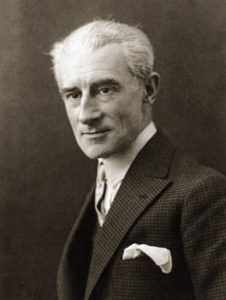
Maurice Ravel, 1925. Photo: Bibliothèque nationale de France
Ravel’s 1925 opera, his second, was written between 1917 and 1925, and features a libretto (by Collette) filled with surreal elements; it concerns a naughty child who willfully destroys various objects (a clock, a china cup a teapot), throws a tantrum, and is, in turn, visited by said objects (and characters, and animals) and is redeemed by a small act of kindness shown to an injured squirrel. The opera deals with themes of claustrophobia, isolation, connection, engagement, sincerity, and benevolence, themes with intense relevance in 2020. The coronavirus pandemic has underlined the need for collaboration, community, and open-hearted goodness at a time when barriers are being erected and widespread closures are happening in ever-increasing numbers, in literal and figurative senses. The opera’s timeliness felt central to both Hewer and producer Tamzin Aitkin as well; the idea for presenting it originated with Hewer herself, who experienced her own brand of restlessness amidst the first coronavirus-related lockdown of 2020.
A vital point in the project’s creation is the extent to which Hewer and Aitken were determined to ensure payment for all involved; VOPERA was not to be a ‘charity gig’ but a fully paid one for everyone involved. Giving temporary employment to over 135 people in total – performers, musicians, technicians, administrators alike – the project is, as its release notes, “ a platform for many to practise and perform in an innovative new way” , a way that includes proper payment. Writing as an artist freelancer for a moment here, I find it very heartening to see how VOPERA’s model (a smart combination of fundraising and sponsorship) is providing an important model of a possible way forwards, underlining with no great subtlety that the “exposure as payment” model so frustratingly common to so many websites and creative endeavors is, particularly in these coronavirus times, both deeply insulting and wholly diminishing – for art and artists alike. Bravo and thank you, VOPERA.
As well as payment, the subject of mental health has been central to the project from its inception. Returning to one’s art form is, as many are learning, not a simple matter in the age of pandemic. From the start, Hewer and Aitken ensured that qualified mental health practitioners were present throughout the entire production process. “Back to normal” isn’t as easy as it sounds, especially when “normal” itself feels like such a distant, far-off thing, and it was refreshing (and more than a bit heartening) that, throughout the course of our lengthy conversation last month, all of us could share struggles, self-doubts, and deep-seated anxieties. One thinks of Albert Schweitzer’s quote here, that “(c)onstant kindness can accomplish much. As the sun makes ice melt, kindness causes misunderstanding, mistrust, and hostility to evaporate.” It applies as much to the “l’enfant” of the title as it does to pandemic life itself; surely what the world needs is kindness, more than ever, and if that kindness is concomitant with creative expression, all the more the better.
VOPERA’s L’Enfant et les Sortilèges makes its debut on Monday, November 16th at 8pm UK time on the LPO’s YouTube channel as well as online cultural broadcaster Marquee TV; it will be available to view for thirty days.
Where did the idea to produce Les Enfant online come from?
TA It’s very much Rachael’s baby.
RH It started because I was totally miserable and felt completely lost at not being able to do what I’ve always done my whole life, and I thought, “I can’t be on my own, there must be loads of people who feel the same way as I do” and then, “What can I do about this? I’m not a spokesperson so I cannot lobby government ministers; I’m not qualified or capable of saving a building or organization… but I can make a show, and bring the best out in people, and get a group of people together to make something.” So it’s about providing a creative focus for as many people as possible, to try and give them something to focus on artistically that will help them not feel as miserable as they were. That’s it. And then I listened to (L’Enfant) and I realized, “This piece is a narrative about what life is like at the moment; it’s a child being educated at home, who reacts to an unprecedented and uncontrollable situation” and… that’s the world.
It’s interesting you chose this, an existing piece, in a year that features numerous new works.
RH It is a masterpiece; Ravel is a genius. I don’t think it’s done enough.
TA The thing that excited me about it is that it takes an established part of the opera canon and totally reimagines how we can work with that canon. And you know, it’s not that it’s a modern production, it’s that the mechanics of how we are making opera have been completely transformed by how this project is working out. I think that has to sit alongside new work and new voices, telling current stories in the first person but this does that as well and speaks to how resilient opera is but also how adaptable it can be. And it was that area which was so exciting. For me personally, and this has been true for everyone engaged in the project, it’s the potency of being able to do your job again… in a curtailed and altered fashion, but it’s extraordinary, to be able to wake up each day and say, “I’m going to engage in making something creative and in telling a story” – which is what many of us had been doing, and then it got taken away from us. That’s what’s been part of the excitement for me.
How did you get involved?
TA Rachael reached out to me through a mutual contact; she’d approached me about something else, and Rachael wrote me a note in… July? I think?
RH I feel like I’ve known you all my life!
TA We didn’t know each other before, and we haven’t yet met in-person!
RH There are so many people I’ve been working with closely on this project, and I haven’t actually met any of them! I was thinking about this the other day, how I wrote Tamzin a note, and she rang me and I thought, “Oh my goodness, what am I going to say?” being really nervous, because to me, Tamzin was and still is this big and important person who knows a lot about a lot of arts things I don’t know about, and I remember thinking in that call, “What should I say?” and putting the phone down and having this sense of, “Well, who knows what she’ll say about doing this project, but I really like her!”
It’s been interesting to note bubbles – the physical ones, the psychological ones; there’s a real sense this year of people only wanting to be or communicate only with their bubble. But the pandemic has simultaneously burst a lot of bubbles because it’s forced people to reach beyond them, especially in the arts world, which can be very cliquish indeed. I wonder how this might change how you work going forwards.
RH Oh it’s changed me completely. Before this I was really self-conscious, I had terrible self-esteem and I still do, at least to some extent, in my personal life, but I went through my professional life thinking, ‘nobody likes me, nobody wants to be my friend, everybody’s laughing at me’ – that’s what I used to wake up thinking…
This sounds familiar.
RH … right? I know I’m not on my own in this. We’re all ruled by all these irrational emotions. And now, because everybody’s experience of me (in this project) has just been who I am and what I believe in and how I choose to be around people, because I’m not working for an organization, I’m not being watched, I’m not being observed or under review or scrutiny to see if I’ll get the next job – it’s just me, and who I am and what I’m like. I have such amazing feedback from people about this whole thing, the whole process, and that’s really done me a lot of favours, and actually what happens now when I do venture out to the real world, which as only happened a few time so far, people I don’t know at all are saying, “You’re the one doing the opera film, it looks great! What an idea!” And these are people who never would’ve never said that to me before!
TA One of the other things to say about the project, and it speaks very much to Rachael’s leadership, is the exceptionally humane care that bleeds through every element of what’s going on in terms of the emotional support and the authenticity of every exchange that goes on. It feels like a very different way of working. I have worked with incredible people and incredibly supportive teams before, and projects where you feel you’re on your own and you’re asking people for help and it’s all very collaborative – but it feels like there’s a real shift to a way of working and creating art that puts peoples’ emotional well-being at the centre of the process as much as the artistic product and … I don’t think I ever want to go back to working in any way where that is not front-and-center of the agenda.
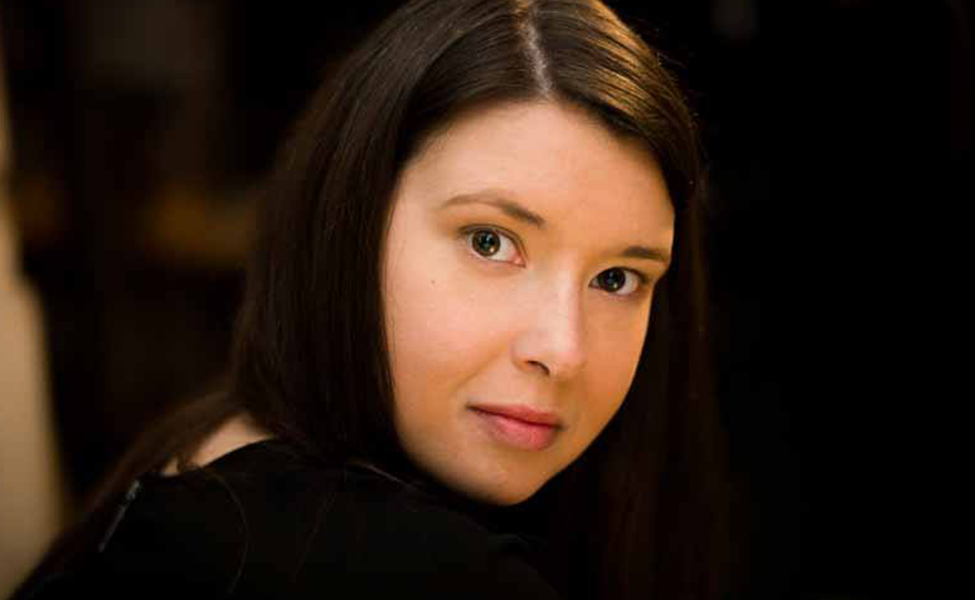
VOPERA founder and director Rachael Hewer.
RH I’m really worried that some people might think of this as a weakness, actually. I am a very emotional person; I have my heart on my sleeve, and I do not believe in this us-and-them thing, even working with my assistant directors. A lot of the time I’m the assistant director, and I know the director is very much like, “You can’t share everything with everybody!” And I don’t know why you wouldn’t, but I’m aware some think of it as a weakness, that you have no self-control or that you’re not a good leader – but I think it takes more strength, I think it takes more determination, and certainly a lot more time and effort to articulate my message in this way, because I have to be completely unafraid to be myself around people I know well, around people that I admire, around people I’ve never met before – like yourself! I just have to have the confidence and the faith and freedom in my own personality – whereas in the old world, you just get into a routine of trying to be like the person next to you, because the person next you is successful, and in order to be successful, you think, “I need to be like just this person because that’s who the people in charge like.”
How much has this project allowed you to embrace the idea(s) of strength through vulnerability, credibility through emotional honesty, with less emphasis on brilliance – which is fine, hurrah learning -– and more on humanity? I admire your mental health support as such a central part of this project.
RH I can’t stop myself from saying this: I think it’s really frighteningly short-sighted to think, “Stick performers on a stage and they will automatically get on with doing what they’ve been missing doing!” – this return to performing is a really sensitive and fragile procedure, and nobody is prepared for that, because everybody will react differently, because we are all different.
TA There was a really interesting piece I read, recently something Monica Lewinsky wrote about the state of mental health right now, and the f-words, fear and fragility, and, wouldn’t it have been astonishing if there was, as well as the daily briefings on health, briefings to talk to us all about how we were responding to the current situation mentally? My experience personally and professionally has been … well, the conversations you start with, “Oh hi, how are you?” – the answers to that question now are much more honest, and people are much more willing to go, “Actually you know what, I had a massive cry; I heard my first bit of live music in ages from someone busking down the street and it made me weep.” Rachael and I have had these honest conversations; we barely knew each other at the beginning of this process but we were incredibly frank about the state of our mental health, because it informs how you are able to work that particular day. To take it out from this into something bigger, I have noticed that across the conversations I’ve been having with people outside of this organization, I work with a charity (Play For Progress) that connects music with young refugees, and everyone I’ve been speaking to, this shift in approach has been really apparent. But it feels really exemplary in terms of the structure Rachael has set up here, and I think it would be a real shame to return to a situation where we’re not being sensitive to other peoples’ well-being in the way that we’re working.
That word “fragility”, even in the arts, is perceived as a weakness; I wonder how much that’s changing and how much work is a form of therapy right now.
RH I need to be accountable, I need to have people relying on me to provide something, I have to have a purpose, even if it’s to empty the bins and put the chairs out – I have to have a purpose. Knowing you were expecting me at a certain time today made me think about this, I had a bath last night and washed my hair. When all my singers were expecting an email or responding to a form or whatever, to have a purpose and be accountable for something means that what I can give artistically has a value, because somebody is waiting for it, somebody needs it and somebody appreciates it. That’s what it is for me.
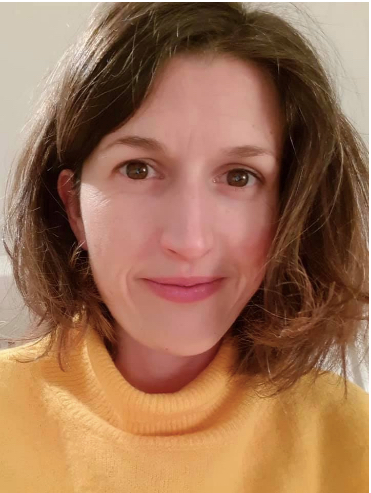
VOPERA Producer Tamzin Aitken
TA I think it’s interesting that as a culture, and in Western culture particularly, when we meet someone new the question is, “What do you do?” I desperately want to get away from that as a conversation opener, but it’s shorthand for “Who are you?”… I think so much of our sense of self and identity is tied up in our work and particularly where that work has a sense of vocation – and for a lot of creatives, it does, it goes beyond a societal-role thing, it’s identifying you as your work when you’re an artist, at least to some extent – but there are so many people who’ve lost their jobs or had contracts canceled or had no focus at all over these months, that their sense of self and identity has just been really damaged. So with this we’ve had a lot of feedback from singers who said what Rachael has said, that having a focus, something to prepare for, having music to learn and rehearsals in the schedule, having a diary, and also having a date to look forward to, when that work will be shared, has been really meaningful.
RH We had rehearsal schedules, a number of weeks that were packed with back-to-back rehearsals, whether it was French coaching on one laptop or music coaching on another laptop, and I had to generate those rehearsal schedules. And I’ve spoken to performers and they said, “It is not the curtain calls and the opening night’s applause that we miss – we miss getting the emails and the ‘Oh no, I’ve read the callsheet wrong!’ and the ‘Oh God I did that audition!’ and ‘I have to be here at such-and-such time’ – it’s all the stuff in-between. This operation is global, so we’re working with people all over the world, and we had about six weeks’ worth of rehearsal in one way or another, all spread out, and nobody was late. Never. Whatever timezone they were in, whatever problems they were having, not once was anybody late. And I think that shows how much people needed this.
And you were very clear from the beginning that people were to be paid for this. As a freelancer, that’s very meaningful! This attitude that creative work, especially online work, isn’t real wor and that “exposure is payment” are horribly diminishing, but they seem to have proliferated throughout the pandemic. Did you have a payment model from the beginning?
RH There was never any question about it. Because not paying people is wrong.
TA You’ve articulated it well, Catherine – it’s not a hobby; it’s peoples’ profession. And loving your work doesn’t take away from the fact that it’s work. I think… there have been people who’ve said to us, “Oh, don’t worry about paying me, it’s meant so much I’ve been able to do this!” and you adamantly say, “NO, that’s not acceptable.”
RH We chase those people like, “Really, you’ve earned this, you are valuable to us, we needed you!” And we spent a long time fundraising.
TA It speaks to the collaborative, ensemble nature of this project as well, that every single person gets paid and it’s a very equitable structure. I think we can be candid about this, that we have a series of budgets in terms of our fundraising structure; there was a bare minimum we knew we had to meet in terms of paying people, and singers, a lot of the people we’re working with, had their contracts cancelled for a whole year, so that’s 12 months’ worth of work down the drain. This in no way replaces that, but this feels important, that those people get paid first. It’s a very new way for me to work, and we’ve had incredible generosity from a couple individuals and foundations, and then loads of people in the community, those who’ve lost work or those who love the arts, they’ve all made small donations as we go. We’ve got this structure for each bit we fundraise so that everyone involved gets a fee increase, a percentage more as we go up. It’s been really important to say to people, “We know you’re getting hit” – and at a point in time when there’s so much uncertainty with so many people who, for whatever reason, have fallen through the cracks in terms of getting support, when there are artists outside the UK, in America and across Europe, who’ve had various levels of support or had none at all, it feels really important they are able to do professional paid work.
Is this something you could see continuing as a model?
RH The thing is, it’s the piece, this piece is structured so that there is no more than one singer in one scene, there are a lot of scenes that only have one person in them, so it lends itself very well to how we’ve managed to put this together. If somebody asked me to do a Traviata or Carmen like this it would be very different, and it would be very difficult, but by no means impossible. I had somebody the other day ask whether this is the future of opera, and no, it’s not the future of opera, but, there is certainly a very important and valid place for projects like this in the future of opera. The audience we have – before, they were a theatre-going audience, they’d go to the opera, or concert halls or the National Theatre, that’s what they loved to do, those people now watch content online; we would never have been able to convince them before this happened to sit on the sofa and log onto Youtube. They’d have said “No way i’m not watching an opera on a bloody computer monitor or TV!” – but now they do, and they are very willing to experience art in that way. We’d never have got this audience and we cannot now just say, “Oh, let them go, they’re not our audience.”
TA Being really candid, I applaud all the efforts there have been to put content online, but I struggle with work that has been designed for a live context, that has just been filmed and transplanted onto a screen; I think it’s partly because the exchange of live theatre is so specific, and so personal, that sense of being an individual and a collective in that specific space is really unique to being in a live venue, and i struggle with an art form where i ought to be able to choose where my focus is, or where the artistry of what’s onstage directs my focus but it’s still within my power to look to the right of the stage; I struggle with something that’s been edited which dictates what my focus is or where it should be.
This is precisely the issue I have with so many online broadcasts, that dictation of attention.
TA It’s a challenge. So I think what’s exciting about this is that it’s been specifically designed to be online only; you are not getting a diluted version, it’s its very own product. In terms of doing something else like this, I think we might be in this (pandemic) for some time, it will go up and down as the virus takes its course, so I think this is a way of letting this sort of work continue. I have yet to see anything that’s been made the way this has been made. I’ve seen other things that have been created as a film but i’ve not seen anything like this, and that’s quite exciting.
Whose idea was the green screen process?
RH it was the biggest idea I wish I’d never had! (laughs) The big reason is that when you perform in front of a green screen to a mobile phone, it is exhausting, far more than anything else I’ve ever done. It is so draining, your energy has to be so focused and so high. And yes, because we can only use our household bubble, my partner Mark, he’s in quite a few of the scenes, he got roped into it, but said yes straight away. He had to learn choreography and all kinds of stuff. It was rather brilliant. The last project I did in the old world was in a production of The Duchess Of Malfi – I was the Duchess. I’d just done this massive Jacobean tragedy onstage and film acting as well, so I thought (in doing this), “Being in front of a camera will be a walk in the park compared to all that” but let me tell you: twenty minutes of green screen work is just as hard as a three-and-a-half-hour Jacobean tragedy.
TA My favorite moment of each day is when Rachael sends me the raw, behind-the-scenes, unedited footage, with she and Mark in a bit of costume doing this incredibly detailed movement work. It’s brilliant, it makes my day!
RH It’s at the stage now where we’re editing it and if we see something that doesn’t work me and my editor go, “Oh no, I know what you’re going to say, go put the costume on, do it again!”
And your studio is a little shed?
RH It’s a tiny little shed! We got green paper from the stationers, stuck it with glue onto cardboard, and nailed the cardboard onto the inside of the shed. Me and Mark cannot stand side by side in there, it’s that small, but people who watch will not know any of this.
So who will watch, do you think?
RH This is always the challenge with directing an opera: you have an audience that has every recording and they’ve come for a specific aria or singer, and then you’ve got another audience who’s never been to an opera before and it all sounds like screaming in another language. It’s impossible to cater for that range of people; it is a universal sort of timeless problem and challenge.
TA It’s a conversation that comes up so often in houses and with any kind of performing company in any structure, and the answer, I think, is it’s always about authentic storytelling. I think the stories you choose to tell then become important, people need to see and hear their own stories being told in the first person but some of opera is so fantastical and weird that nobody’s story is being told, yet you can find narratives that work, which are universal. I do believe in investing in new opera for that reason, but any conversation requires you to speak authentically, and to speak transparently, and to bring yourself to the conversation. With this production, everyone was so emotionally open throughout the whole process, so it’s an emotionally open and honest work, and the production is not only a response to the opera itself, but to the situation we find ourselves in now; it will speak to whoever shows up to it. There’s a job to do in terms of making people feel empowered to show up and feeling they can participate without excluding anyone else who’s showing up. I think it’s about authenticity of communication.
